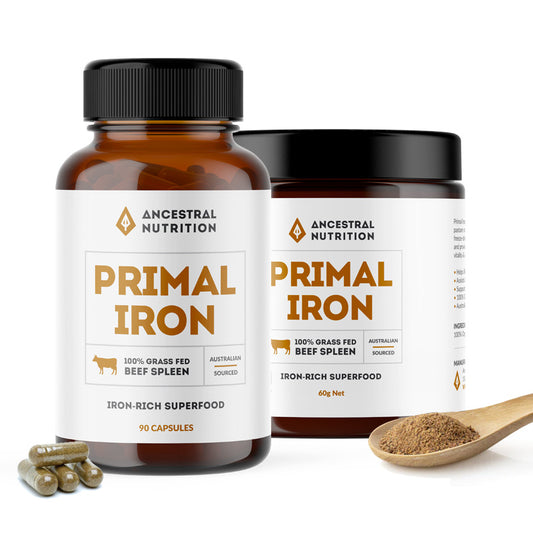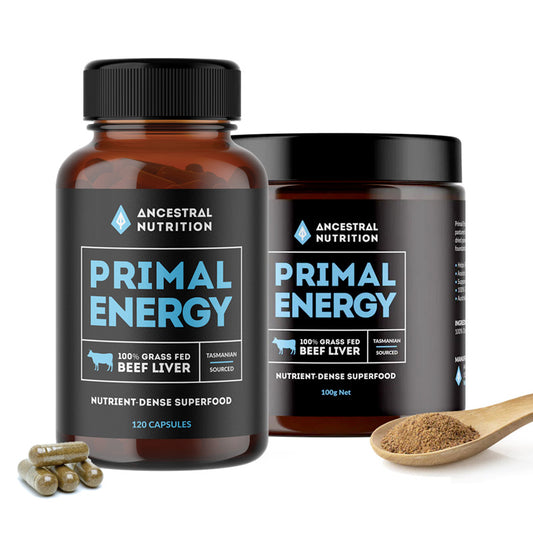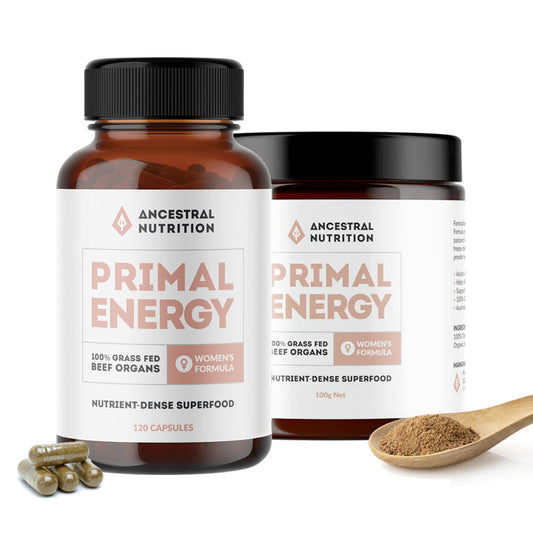Unlock the Secrets of Healthy Blood: Nutrients That Support Red Blood Cell Formation
article by Ancestral Nutrition
Erythropoiesis — the process of red blood cell formation — is a fascinating and complex biological function that plays a vital role in keeping us energised and thriving. While it happens behind the scenes in our bone marrow, this process is powered by some very familiar nutrients found in everyday foods.
In this article, we’ll break down how red blood cells are made, the nutrients that support this process, and why organ meats like beef liver may be a valuable addition to your diet.
What Is Erythropoiesis?
Red blood cells are produced in the bone marrow through a process called erythropoiesis. These cells are responsible for transporting oxygen from your lungs to every part of your body, helping maintain energy levels and cellular function.
The production of red blood cells is regulated by a hormone called erythropoietin (EPO), which is produced by the kidneys in response to oxygen demand. To support this process, your body relies on specific nutrients — particularly iron, vitamin B12, and folate.
Key Nutrients for Red Blood Cell Formation
1. Iron
Iron is a component of haemoglobin, the protein in red blood cells that binds oxygen. Without adequate iron from the diet, the body cannot produce enough of this vital oxygen-carrying protein.
Food sources include:
- Beef liver and kidney
- Lean red meat
- Shellfish (e.g. oysters and mussels)
- Legumes and tofu (plant-based sources)
- Vitamin B12
Vitamin B12 contributes to:
- The normal formation of red blood cells
- Energy-yielding metabolism
- Nervous system support
Animal foods are the most reliable dietary sources of B12, as it is typically not found in plant-based foods.
2. Folate (Vitamin B9)
Folate supports:
- Normal cell division
- Formation of red and white blood cells
- DNA synthesis
Folate is found in leafy greens, legumes, and organ meats like beef liver.
A Nutrient-Rich Wholefood: Beef Liver
Beef liver is one of the most concentrated food sources of heme iron, B12, and folate, along with a wide array of additional nutrients including:
- Vitamin A (as retinol)
- Vitamin B2 (riboflavin)
- Choline and CoQ10
- Copper, zinc, and selenium
Together, these nutrients contribute to:
- Normal red blood cell formation
- Support of the immune system
- Maintenance of general wellbeing
Prefer Not to Eat Liver?
We understand that not everyone enjoys the taste or texture of organ meats. For those looking for a convenient, wholefood-based option, our freeze-dried beef organ supplements offer a simple way to support nutrient intake as part of a balanced diet.
At Ancestral Nutrition, our Primal Energy Beef Liver capsules are:
- Made from 100% grass-fed, grass-finished Tasmanian cattle
- Freeze-dried to preserve delicate nutrients
- Non-defatted to retain fat-soluble vitamins like A and D
- Free from hormones, antibiotics, and GMOs
They’re ideal for those who value real-food nutrition, but prefer a capsule format.
Always read the label and follow the directions for use. Nutritional supplements should not replace a balanced diet. For personalised advice, speak to a qualified healthcare practitioner.




